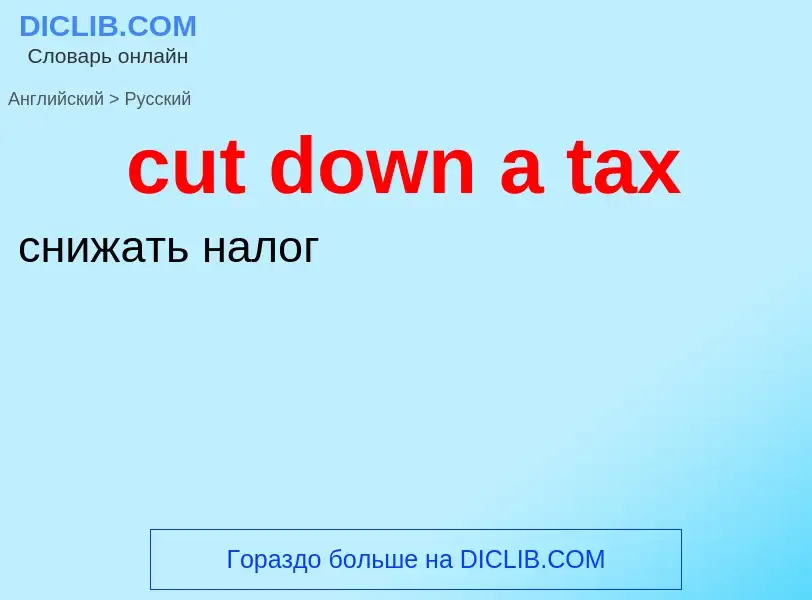ترجمة وتحليل الكلمات بواسطة الذكاء الاصطناعي
في هذه الصفحة يمكنك الحصول على تحليل مفصل لكلمة أو عبارة باستخدام أفضل تقنيات الذكاء الاصطناعي المتوفرة اليوم:
- كيف يتم استخدام الكلمة في اللغة
- تردد الكلمة
- ما إذا كانت الكلمة تستخدم في كثير من الأحيان في اللغة المنطوقة أو المكتوبة
- خيارات الترجمة إلى الروسية أو الإسبانية، على التوالي
- أمثلة على استخدام الكلمة (عدة عبارات مع الترجمة)
- أصل الكلمة
cut down a tax - ترجمة إلى الروسية
تعريف
ويكيبيديا
A tax cut represents a decrease in the amount of money taken from taxpayers to go towards government revenue. Tax cuts decrease the revenue of the government and increase the disposable income of taxpayers. Tax cuts usually refer to reductions in the percentage of tax paid on income, goods and services. As they leave consumers with more disposable income, tax cuts are an example of an expansionary fiscal policy. Tax cuts also include reduction in tax in other ways, such as tax credit, deductions and loopholes.
How a tax cut affects the economy depends on which tax is cut. Policies that increase disposable income for lower- and middle-income households are more likely to increase overall consumption and "hence stimulate the economy". Tax cuts in isolation boost the economy because they increase government borrowing. However, they are often accompanied by spending cuts or changes in monetary policy that can offset their stimulative effects.

